Podcast: Play in new window | Download (Duration: 5:56 — 4.2MB) | Embed
Subscribe: Apple Podcasts | Spotify | Amazon Music | Android | Pandora | iHeartRadio | JioSaavn | Podchaser | Gaana | Podcast Index | Email | TuneIn | Deezer | Anghami | RSS | More
An Advent Journey for the Discerning Heart:
Prepare your heart for Christ through Scripture, the saints, and the gentle practice of daily listening.
Part Four: Welcoming Christ with a Heart Fully Awake
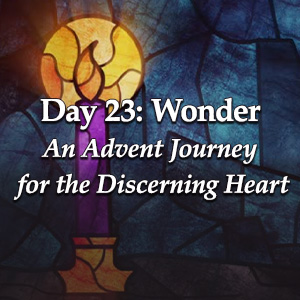 DAY 23 – Wonder
DAY 23 – Wonder
“And when Elizabeth heard the greeting of Mary, the babe leaped in her womb; and Elizabeth was filled with the Holy Spirit.”
Luke 1.41 RSV
Wonder is the interior awakening that happens when the heart recognizes God’s nearness. It is not dramatic, not emotional intensity, and not the pursuit of supernatural experience. Wonder is the soul’s quiet realization that grace is already at work, often before we understand it. It is the moment when something within us becomes alert to God’s presence in a way that humbles, steadies, and draws us into deeper reverence.
True wonder begins with listening. When the heart is attentive, it becomes capable of perceiving what God is doing beneath the surface of ordinary life. Wonder can arise through a greeting or a small kindness, but it just as often awakens in silence, in the beauty of creation, in the stillness of early morning, or in the way something simple suddenly draws the soul upward. A tree covered in frost, the quiet shape of clouds, candlelight in a dark chapel, the peaceful rhythm of breathing — these, too, can become places where grace stirs and the heart senses more than what appears. Wonder is the recognition that God is acting in ways we did not expect, often in hidden, gentle, and expansive movements.
As Advent nears its fulfillment, wonder prepares the soul to meet Christ with reverence. It slows the heart, opens the interior space where God can be received, and teaches us to expect His presence in small and simple ways. Wonder is not about understanding; it is about awareness. It disposes the heart to say, “God is here,” even before we fully grasp how.
Journey with the Saints –
St. Elizabeth
“And why is this granted to me, that the mother of my Lord should come to me?
For behold, when the voice of your greeting came to my ears, the babe in my womb leaped for joy.”
Luke 1.43 RSV
St. Elizabeth offers a lived example of wonder rooted in humility and attentiveness. When Mary arrived at her home, Elizabeth’s response flowed from a heart formed in prayer and interior listening. She heard Mary’s greeting with her ears, but with her heart she perceived the presence Mary carried. Her recognition was immediate and Spirit-filled: “And why is this granted to me, that the mother of my Lord should come to me?”
St. Elizabeth did not need explanation or proof. She received the moment with humility and joy because her heart was already attuned to God. Her wonder was not passive; it was a dynamic response to grace. She allowed the Holy Spirit to illuminate what her senses could not yet see and responded with gratitude rather than fear or confusion.
St. Elizabeth teaches us that wonder grows in hearts that are receptive, unhurried, and willing to let God surprise them. She shows that the one who listens deeply will also recognize Christ when He approaches.
Reflection for the Listening Heart
Where might God be approaching you quietly today? What ordinary moment could carry His presence? Wonder grows when we slow down enough to notice the movements of grace hidden in our day. Ask for the grace to recognize Christ in the small, the simple, and the unexpected.
Ask yourself:
- Who might be carrying Christ to me today?
- Where is God drawing near in ways I would normally overlook?
Let the Lord awaken in you the same interior attentiveness that filled Elizabeth with joy.
A Simple Practice for Today
Choose one ordinary encounter today, a greeting, a conversation, or a moment of quiet, and ask:
“Lord, are You visiting me here?”
Let this question awaken wonder.
Prayer
Lord Jesus, give me the listening heart of Elizabeth. Awaken in me a spirit of wonder that recognizes Your hidden approach. Open my ears to hear Your voice, my heart to perceive Your presence, and my soul to rejoice when You draw near. Fill me with humility and gratitude, and teach me to welcome You with the same joy that filled Elizabeth’s home.
Amen.
For more of the episodes of
An Advent Journey for the Discerning Heart with Kris McGregor visit here
Citations for Day 23
Luke 1.41 RSV
Luke 1.43 RSV
© Discerning Hearts. All rights reserved.

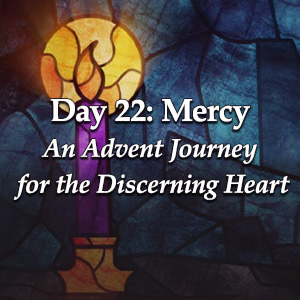 DAY 22 – Mercy
DAY 22 – Mercy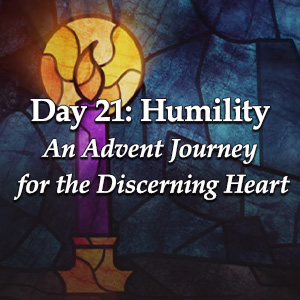 DAY 21 – Humility
DAY 21 – Humility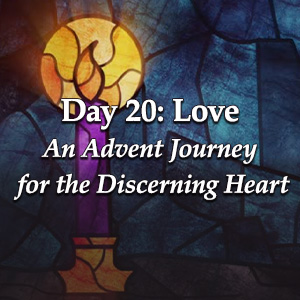
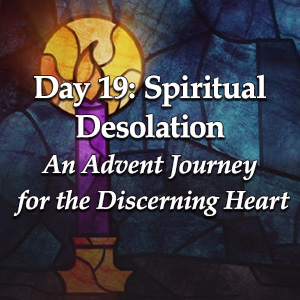
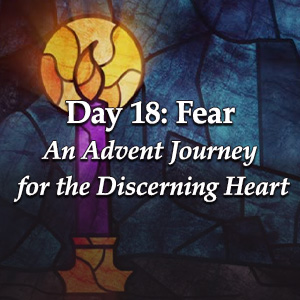 DAY 18 – Fear
DAY 18 – Fear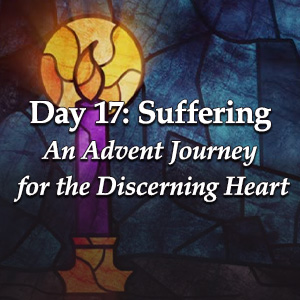 DAY 17 – Suffering
DAY 17 – Suffering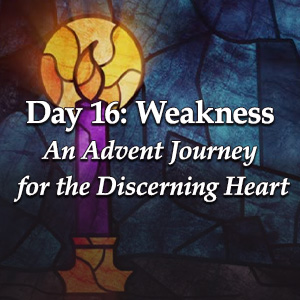 DAY 16 – Weakness
DAY 16 – Weakness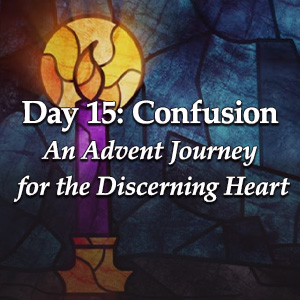 DAY 15 – Confusion
DAY 15 – Confusion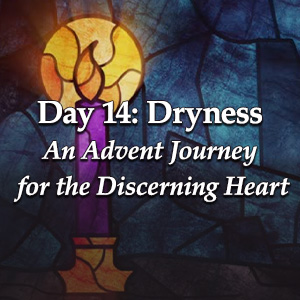 DAY 14 – Dryness
DAY 14 – Dryness